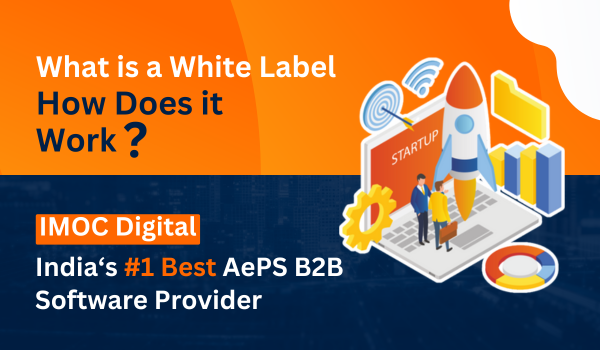
White label solutions are products or services created by one company and rebranded by another. These solutions allow businesses to offer high-quality products without developing them from scratch.
Understanding White Labeling
Basic Process Overview
White labeling involves several steps. First, a company produces a product or service. Then, another company buys the rights to rebrand and sell it as their own. This process includes customization, branding, and marketing. It’s a win-win for both parties involved.
Key Players in White Labeling
The key players in white labeling are the manufacturers and the resellers. Manufacturers produce the product, while resellers focus on branding and marketing. This collaboration allows both parties to leverage their strengths and achieve mutual success.
White Label vs. Private Label
While white label and private label are often used interchangeably, they have distinct differences. White label products are generic and sold to multiple resellers. Private label products are exclusive to one retailer. Both strategies offer unique advantages depending on business goals.
How White Labeling Works
White labeling involves purchasing a product or service from a third-party provider and selling it under your brand. This process includes:
- Choosing a Provider: Select a reputable company that offers white label products.
- Customization: Tailor the product to fit your brand’s aesthetics and values.
- Rebranding: Apply your brand’s logo and design elements to the product.
- Marketing and Selling: Promote and sell the product as your own.
Benefits of White Labeling
Cost-Effective
White labeling is a cost-effective way to expand your product line. It eliminates the need for research and development, reducing overhead costs significantly.
Speed to Market
Launching white label products is quicker than developing new ones. This speed allows businesses to respond promptly to market demands and trends.
Focus on Core Proficiency
By leveraging white label solutions, businesses can focus on their core competencies, such as marketing and customer service, rather than product development.
Popular White Label Industries
White labeling is prevalent in various industries, including:
Technology
Many tech companies offer white label software solutions, such as website builders, e-commerce platforms, and mobile apps.
Health and Wellness
White label products in this industry include supplements, skincare products, and fitness equipment.
Financial Services
Financial institutions often use white label services for credit cards, insurance policies, and banking apps.
Challenges of White Labeling
Quality Control
Ensuring the quality of white label products is crucial. Partnering with reputable providers can mitigate this risk.
Brand Differentiation
Standing out in a market flooded with similar white label products can be challenging. Strong branding and marketing strategies are essential.
Conclusion
White labeling offers a strategic advantage for businesses looking to expand their product lines without the high costs of development. By selecting quality providers and focusing on effective branding, companies can leverage white label solutions to grow and succeed in competitive markets.
FAQs
What is a white label product?
A white label product is created by one company and rebranded by another company to appear as their own.
How does white labeling benefit businesses?
White labeling reduces development costs, speeds up time to market, and allows businesses to focus on their core strengths.
What industries use white labeling?
Industries like technology, health and wellness, and financial services commonly use white labeling.
What are the challenges of white labeling?
Challenges include maintaining quality control and differentiating the brand in a crowded market.
